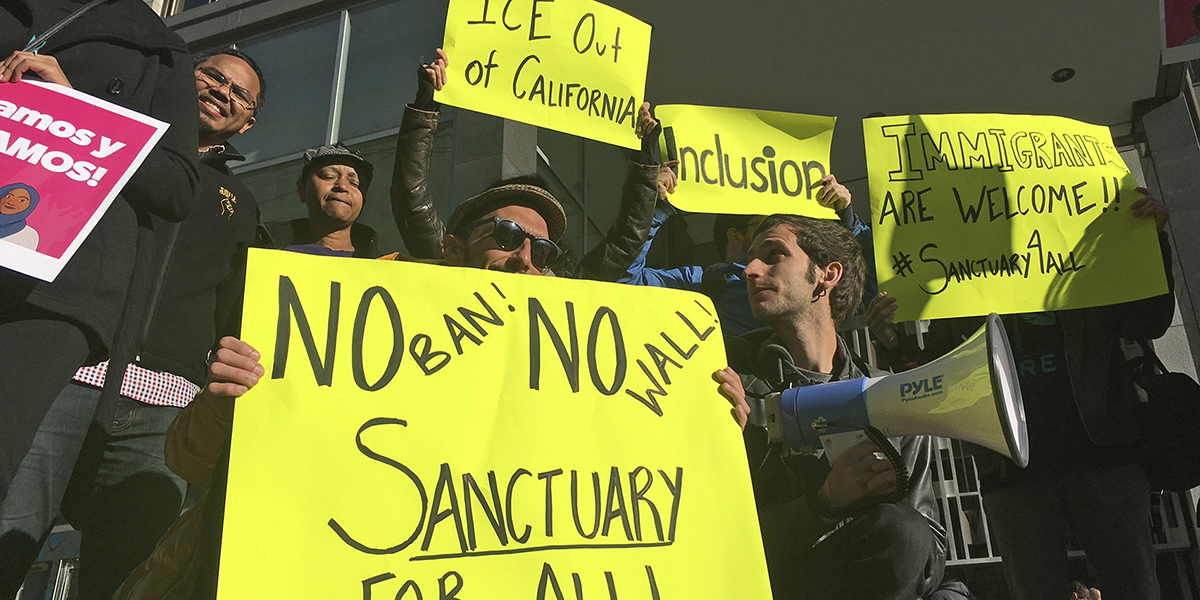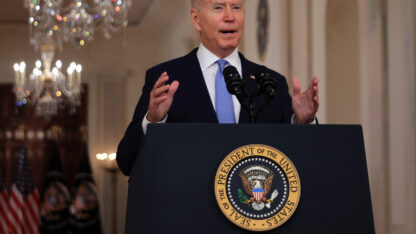Unclear How Blocked Sanctuary Funding Ban Would Have Affected Ga.

Protesters hold up signs outside a courthouse where a federal judge will hear arguments in the first lawsuit challenging President Donald Trump’s executive order to withhold funding from communities that limit cooperation with immigration authorities Friday, April 14, 2017, in San Francisco. U.S. District Court Judge William Orrick has scheduled a hearing on Friday on … Continued
Haven Daley / Associated Press
It’s unclear whether some metro Atlanta counties would have faced funding cuts under President Donald Trump’s executive order to withhold funding from so-called “sanctuary cities.”
A federal judge Tuesday temporarily blocked the administration from withholding funding from cities and counties that limit cooperation with immigration officials. But immigration lawyers say even if the order went into effect, the term “sanctuary” isn’t clearly defined.
“They just left so much open to interpretation on what could be seen as not cooperating, and therefore could be subject to withholding federal funds, and I think that’s one of the things the judge really found an issue with,” said Tracie L. Klinke, first vice chair of the Georgia-Alabama Chapter of the American Immigration Lawyers Association.
DeKalb and Clayton counties were identified in list compiled by the Department of Homeland Security as limiting cooperation with federal immigration officials. The counties don’t hold people beyond their scheduled release dates for immigration purposes.
Last month, DeKalb County Sheriff Jeffrey Mann said in response to the list that the sheriff’s office complies with all federal and state laws.
“To the extent that this agency can, we will continue to employ our limited, taxpayer-supported resources to assist ICE with its efforts to secure and detain ‘alien’ criminal suspects in our community by providing advance inmate release notification,” Mann said. “However, federal case law has determined that detaining inmates beyond lawful release without sufficient probable cause or a judicial warrant from ICE is a violation of constitutional law.”
“It remains to be seen,” whether or not Georgia jurisdictions would be affected by the funding order, said Azadeh Shahshahani, legal and advocacy director at Project South.
“I think this was one of the problems that the court pointed out that it’s not clear, how the federal government is defining sanctuary cities,” Shahshahani said.
Trump criticized the judge’s ruling in a tweet.
“First the Ninth Circuit rules against the ban & now it hits again on sanctuary cities-both ridiculous rulings. See you in the Supreme Court,” he tweeted.
9(MDAxODM0MDY4MDEyMTY4NDA3MzI3YjkzMw004))







